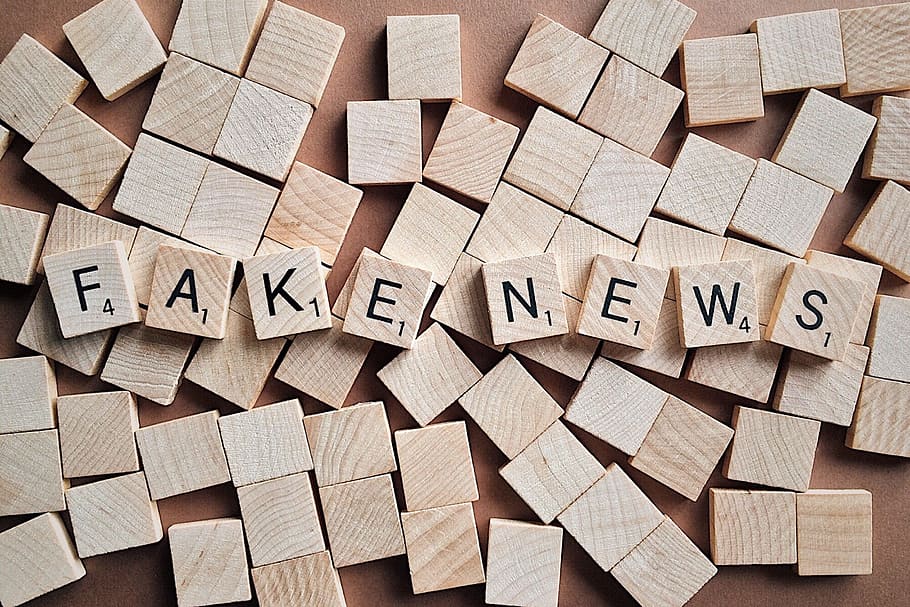Beyond Speculation – A Guide To Identifying Genuine Information
In a world where we’re constantly bombarded with information, it’s more important than ever to be able to identify fake news. We’ll show you how!
1. The importance of verifying information
Consequences In the era of disinformation, it is more important than ever to verify the information. Fake news and gossip have become rampant on social media and can have very real-life consequences. Whether it’s a piece of news that affects stock markets or a rumor about someone’s personal life, it is essential to take the time to verify the information before you believe it or share it with others. The problem is compounded by the fact that many people do not know how to properly verify information. They don’t take the time to check sources or look for corroborating evidence. Instead, they often rely on tonality and emotional appeal to determine if something is true or false. This can be dangerous as tonality can be easily manipulated and used in a persuasive way. It is important to remember that just because something sounds good, doesn’t mean that it is true. Taking the time to fact-check and research all sources of information can help ensure that you are getting accurate and reliable information. Not only will this save you from believing false stories but it will also help stop the spread of fake news and gossip. In today’s world, verifying information has become a critical part of staying informed and protecting yourself from misinformation. Don’t fall prey to persuasive tonality, always make sure you are getting accurate facts by checking your sources before you believe or share something!
2. How to identify trustworthy sources
There’s been a lot of talks lately about “fake news” and the role it plays in society. It’s become increasingly difficult to know what sources to trust, and the line between gossip and real news has become blurred. So how can you tell if a source is trustworthy? Here are some things to look for: – authoritative sources that are experts in their field – multiple sources that all say the same thing – unbiased sources that don’t have a hidden agenda If you can find sources that meet all of these criteria, you can be reasonably sure that you’re getting accurate information.
3. Why we should be critical of what we read and see
Impact As a society, we have become so accustomed to consuming news and information from social media that it is easy to forget the difference between truth and fiction. Fake news and gossip can be found in abundance across the internet, broadcast on television, or even shared in private conversations. The tonality of these messages can be particularly persuasive because it comes from a source we trust. We are then left questioning what is true and what is not. It is important for us to be critical of the information we consume on a daily basis. Taking the time to question the source or accuracy of each piece of information can help us make more informed decisions about our lives and our beliefs. Fake news can spread quickly through social media and bring about unintended consequences in real life. It has been proven to influence political elections, public opinion, and even market trends – all based on false information! We must remain vigilant when it comes to consuming news, gossip, and other forms of media. Don’t take all you read at face value – use your own judgment and investigate further before believing everything you see or hear. Ask questions, seek out multiple sources to verify the accuracy, and don’t believe everything you read on social media without thoroughly researching first. We are all responsible for staying up-to-date with accurate news and understanding when something is not true or trustworthy.

4. Evaluating the credibility of a source
It’s important to evaluate the credibility of a source before believing what they say. This is especially true when it comes to news and gossip. Fake news and gossip can be very persuasive, but often times it’s not based on the truth. Taking the time to evaluate the credibility of a source can help you decide if what they’re saying is reliable or not.
5. Strategies for finding reliable information
Fake news, gossip, and real life can be overwhelming for even the most informed person. It’s important to know how to differentiate between reliable sources and unreliable ones. Here are some strategies to help you find reliable information:
A. Check the Source: Be sure to look at the source of any information you come across. Is it coming from a reputable news source? Is it coming from an individual or group with a vested interest in the topic? Does the source have a history of publishing accurate information?
B. Look for Multiple Sources: To verify whether something is true or false, try looking at multiple sources that cover the same topic. If several reputable outlets are reporting on the same thing, it’s likely more accurate than if only one outlet is covering it.
C. Pay Attention to Tonality: Tonality can be persuasive, so pay attention to how something is being presented. If a story seems overly biased or has an inflammatory tone, it may be worth double-checking its validity before sharing.
D. Don’t Trust Everything You See on Social Media: Social media platforms are full of unreliable content, so always take what you see with a grain of salt. Check who posted it and when, and research further before jumping to conclusions or sharing anything with others. By following these strategies, you can ensure that you’re getting your information from reliable sources and not getting caught up in fake news, gossip, or other forms of misinformation.
6. The benefits of being an informed citizen
We all know the feeling: that angry, frustrated, or even helpless feeling we get when we read or see something that just isn’t true. In this age of social media and “fake news”, it’s more important than ever to be an informed citizen. So what are the benefits of being an informed citizen? For one, you can avoid being taken advantage of or misled. Being informed also helps you make better decisions, both in your personal life and when it comes to voting or other political issues. Additionally, being an informed citizen can help create a more informed society overall. When everyone is better informed, we can all make better decisions and progress as a whole. Of course, being an informed citizen takes effort. It means keeping up with the news, reading beyond headlines, and doing your own research on important issues. But the benefits are definitely worth it. So next time you’re feeling angry or frustrated about something you read online, remember that being an informed citizen is one way to fight back against misinformation.
